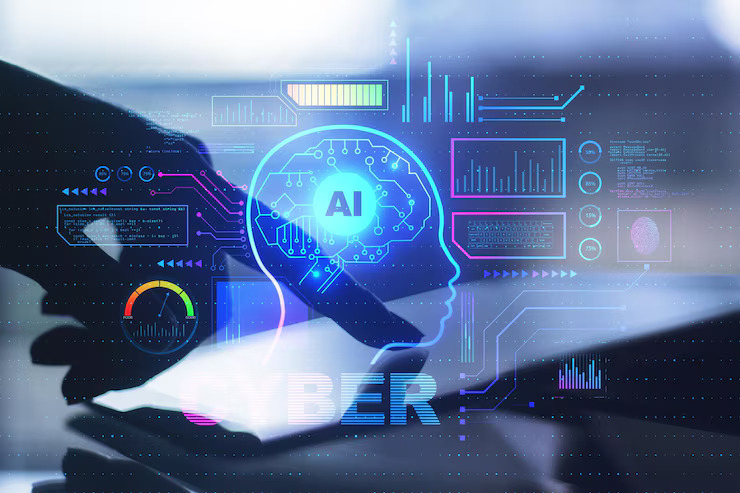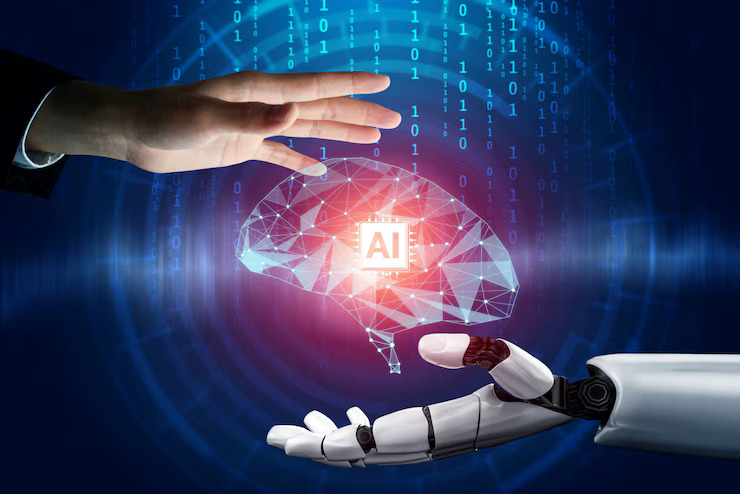Top Career Opportunities After a BCA in AI: What to Expect in the Next 5 Years
The rapid growth of Artificial Intelligence (AI) is reshaping industries around the world — and with a BCA (Bachelor of Computer Applications) in AI, graduates are entering one of the most dynamic and opportunity-rich job markets of the 21st century. But what exactly can you expect after completing a BCA in AI? Let’s explore the top career paths and future trends over the next five years.

1. AI & Machine Learning Engineer
What They Do:
AI/ML engineers design and develop algorithms that allow machines to learn from data. Their work is behind technologies like facial recognition, fraud detection, autonomous vehicles, and predictive analytics.
Growth Forecast:
The global demand for AI engineers is projected to increase by at least 40% by 2030, with India becoming one of the top three AI talent markets in the world.
Skills Required:
Programming: Python, R, Java
AI frameworks: TensorFlow, Keras, Scikit-learn, PyTorch
Strong knowledge of statistics, linear algebra, and calculus
Understanding of data pipelines and APIs
2. Data Scientist / Data Analyst
What They Do:
These professionals transform large volumes of unstructured data into actionable insights using advanced analytics and visualization tools.
Why It’s Hot:
The explosion of digital data means companies need experts who can make sense of it — and AI-based data analysis is revolutionizing decision-making.
Skills Required:
SQL, Python, R
Data visualization: Tableau, Power BI
Statistical analysis
Machine Learning algorithms for predictive modeling
Career Progression:
Data Analyst → Data Scientist → AI Data Strategist
3. AI Software Developer
What They Do:
Unlike traditional developers, AI software engineers create applications that learn and evolve — such as recommendation systems, smart assistants, and adaptive user interfaces.
Key Trends:
AI is transforming app development. Expect smarter apps integrated with voice, vision, and emotion recognition within the next 5 years.
Skills Required:
Python, Java, C++
RESTful APIs, cloud computing (AWS, Azure)
AI/ML libraries
Full-stack development basics

4. Robotics Process Automation (RPA) Developer
What They Do:
RPA developers create software bots that automate repetitive tasks — from email sorting to invoice processing — increasing productivity and reducing human error.
Why It’s Booming:
RPA is being adopted in finance, healthcare, and supply chain management to streamline operations.
Skills Required:
RPA tools: UIPath, Blue Prism, Automation Anywhere
Scripting languages: Python, JavaScript
Business process management knowledge
5. Cybersecurity Analyst (AI-Powered)
What They Do:
With cyber threats becoming more advanced, these analysts use AI to detect, prevent, and respond to security breaches in real time.
The Future Need:
AI-driven cybersecurity will grow massively in response to increasing global cyberattacks and data breaches.
Skills Required:
Network security fundamentals
AI-based anomaly detection tools
- SIEM platforms (Security Information and Event Management)
- Ethical hacking and penetration testing
5. Cybersecurity Analyst (AI-Powered)
What They Do:
With cyber threats becoming more advanced, these analysts use AI to detect, prevent, and respond to security breaches in real time.
The Future Need:
AI-driven cybersecurity will grow massively in response to increasing global cyberattacks and data breaches.
Skills Required:
Network security fundamentals
AI-based anomaly detection tools
- SIEM platforms (Security Information and Event Management)
- Ethical hacking and penetration testing
6. Business Intelligence (BI) Developer with AI Integration
What They Do:
As cyber threats become increasingly sophisticated, these analysts utilize AI to detect, prevent, and respond to security breaches in real-time.
Industry Trend:
Companies want more than static reports — they want tools that predict outcomes using AI. That’s where BI meets AI.
Skills Required:
BI tools: Power BI, Tableau
SQL, Python
- Data modeling
- Knowledge of business metrics and KPIs
7. Natural Language Processing (NLP) Engineer
What They Do:
NLP experts design systems that allow machines to understand and respond to human language. Think of Alexa, Siri, or chatbots.
Applications:
Language translation
Sentiment analysis
- Voice-command apps
- Healthcare record analysis
Skills Required:
Linguistics + AI (semantic and syntactic understanding)
NLP libraries: NLTK, SpaCy, Gensim
- Deep learning for NLP (RNN, LSTM)
Emerging Trends to Watch (2025–2030)
✅ Hybrid Roles:
Expect interdisciplinary roles like AI in education, healthcare, law, and finance. For example, an “AI Health Data Analyst” or “AI Legal Tech Consultant.”
✅ AI Ethics and Governance:
As AI grows, so does the need for professionals who understand data privacy, algorithm bias, and responsible AI use.
✅ AI + IoT (Internet of Things):
AI will increasingly be embedded in devices — from smart homes to connected vehicles — opening up roles in edge computing and AI firmware development.
✅AI + IoT (Internet of Things):
A large chunk of AI work can be done remotely. Freelance platforms are booming with demand for AI developers, making global career access easier.
How to Prepare for These Careers
📌 Build a Strong Foundation:
Master programming languages (especially Python)
Take online certifications (Coursera, edX, Udemy) in AI/ML
Work on real-world projects (GitHub portfolio matters)
📌 Internships & Networking:
Apply for internships in AI startups or research centers
Attend AI conferences and webinars
Contribute to open-source AI tools
📌 Stay Updated:
Follow AI journals, YouTube channels, and industry news
Learn new AI frameworks and cloud technologies
Graduating with a BCA in Artificial Intelligence opens the door to some of the most futuristic, impactful, and lucrative careers in the coming decade. The next five years will bring exponential changes in how we interact with machines, interpret data, and make decisions — and AI professionals will be at the heart of that transformation.
If you’re passionate about technology, curious about intelligent systems, and eager to solve complex problems, a career in AI is not just promising — it’s inevitable.
About Us
Christian College, Bangalore is one of the top colleges in Bangalore
Contact us
- Mob: +91 9845 044 494
- +91 6364 71 5544
- +91 6364 81 5544
- admission@christiancollegebangalore.org
- Web:www.christiancollegebangalore.org

Copyright © 2025 All rights reserved.